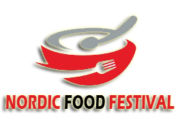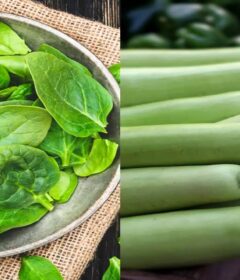Learn More About Polish Dishes and Polish Culture –

Introduction –
In the pantheon of worldwide foods, Poland normally doesn’t highlight profoundly. Where individuals know about Polish food, it is normally connected with specific generalizations. However, there is something else to it besides the well-known vodka and pierogi. Now is the right time to disperse a portion of the fantasies and investigate the less popular parts of Poland’s shifted, fascinating and frequently astonishing culinary culture. And, don’t forget to visit the popular Restauracje Warszawa. According to an ethnological perspective, there is no single Polish cooking across reality. Country dishes are totally unique in relation to those that would be found on a seventeenth century Polish Sarmatian aristocrat’s table, which were fragrant with imported flavors, as well as prepared blends similar as current Indonesian food. The food served during the socialist time, for the most part roused by over-the-counter item accessibility, is another story through and through.
Local Appearance of Dishes –
Additionally, Polish dishes have numerous local appearances. The northern Kashubian area on the Baltic coast is popular for its fish, particularly herring as well as fried eggs with eel. Potatoes comprise the premise of the eating routine in the focal fields of More prominent Poland, where they are generally developed. The uneven southern Podhale district flaunts its EU-confirmed local sheep cheeses and sheep. In the southeastern tip of Poland, the Lemko minority actually develop their cooking with safeguarded tomatoes, dumplings, and curds balls with spices. Polish food goes back and forth with the seasons. Spring is related with Easter food: it is a period of cold meats, eggs served in numerous ways, and cakes like babka (a tall Bundt cake) and mazurek (rich shortcrust baked good with jam or caramel cream). Since the seventeenth 100 years, Easter tables have been enlivened with garden cress joined by sheep figure. This spice is likewise eaten as fledglings.
Best Summer Dish –
Summer is an ideal opportunity to attempt chłodnik – a dazzling pink virus soup produced using beetroots and harsh milk – trailed by a motorcade of new berries, from strawberries through gooseberries, raspberries, cherries and bilberries. Fall brings apples, various fragrant mushrooms and game. A banquet highlighting cooked goose is the most effective way to observe November – when the greasy bird tastes its ideal. The season is likewise connected with Holy person Martin of Visits, whose day is praised on 11 November, and who has this bird as his insignia. Christmas is about conventional gingerbreads, poppy seed cake, as well as dunked herring and carp.
Ruthenian dumplings, not Russian –
Poland’s leader dish of pierogi is a sort of dumpling that began in China and spread around Eurasia through Silk Street exchange. Poland even has a benefactor for its assortment of the dish, Holy person Hyacinth (1183-1257), who brought the main recipe for pierogi from Kyiv. As per legend, he cooked the dumplings and saved individuals in Kraków from starvation. The most famous sort is pierogi ruskie – with a filling of quark cheddar blended in with bubbled potatoes, frequently presented with lardons or seared onion. This recipe isn’t generally so old as Holy person Hyacinth’s, since potatoes were not a well-known staple food in Poland until the nineteenth hundred years. Their name is frequently converted into English as “Russian pierogi”, and many Shafts additionally accept that they connect with Russia. As a matter of fact, “ruskie” alludes to Red Ruthenia (Ruś Czerwona in Polish), a region that is currently in western Ukraine and Poland. Their name is, hence, appropriately interpreted as “Ruthenian pierogi”.




